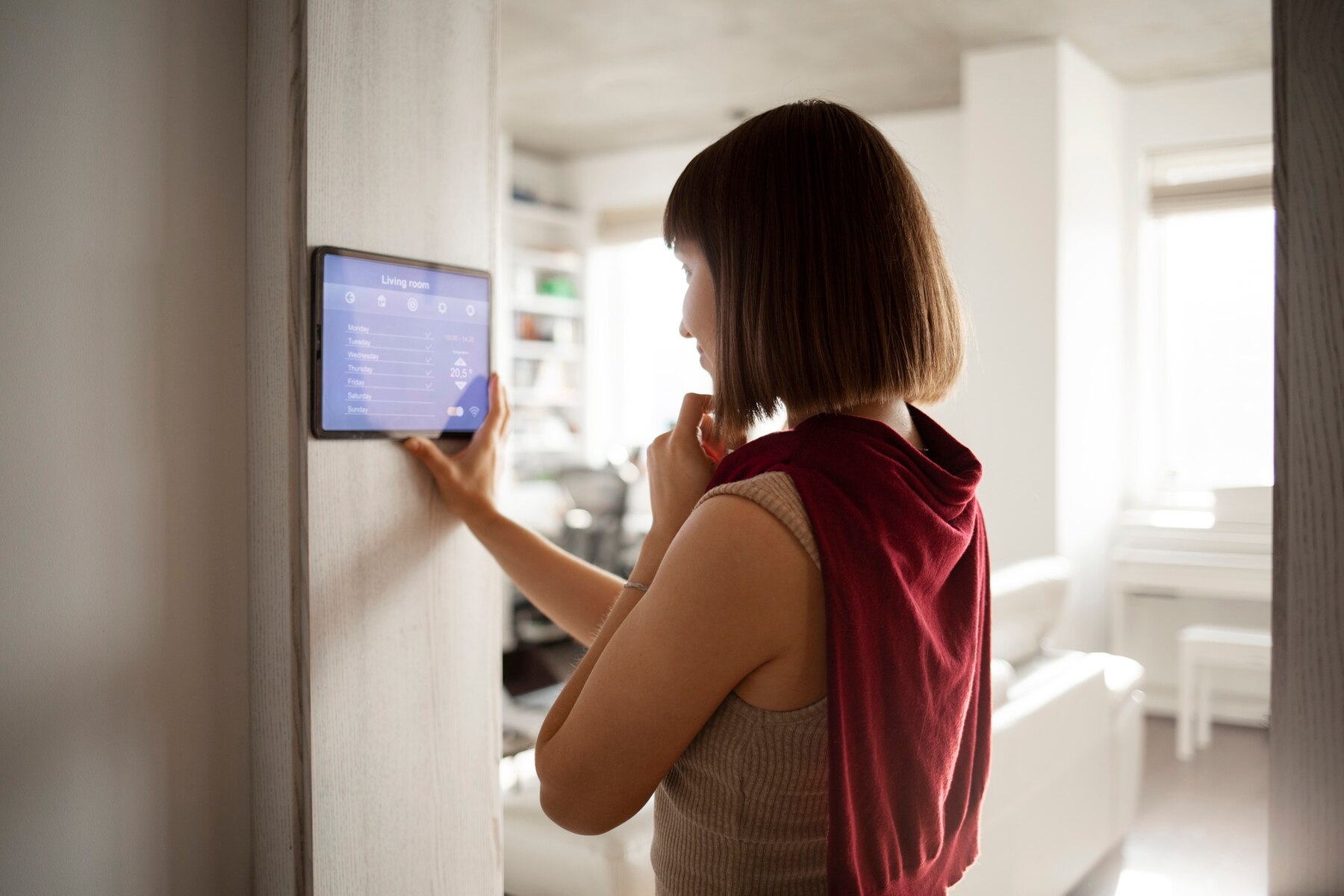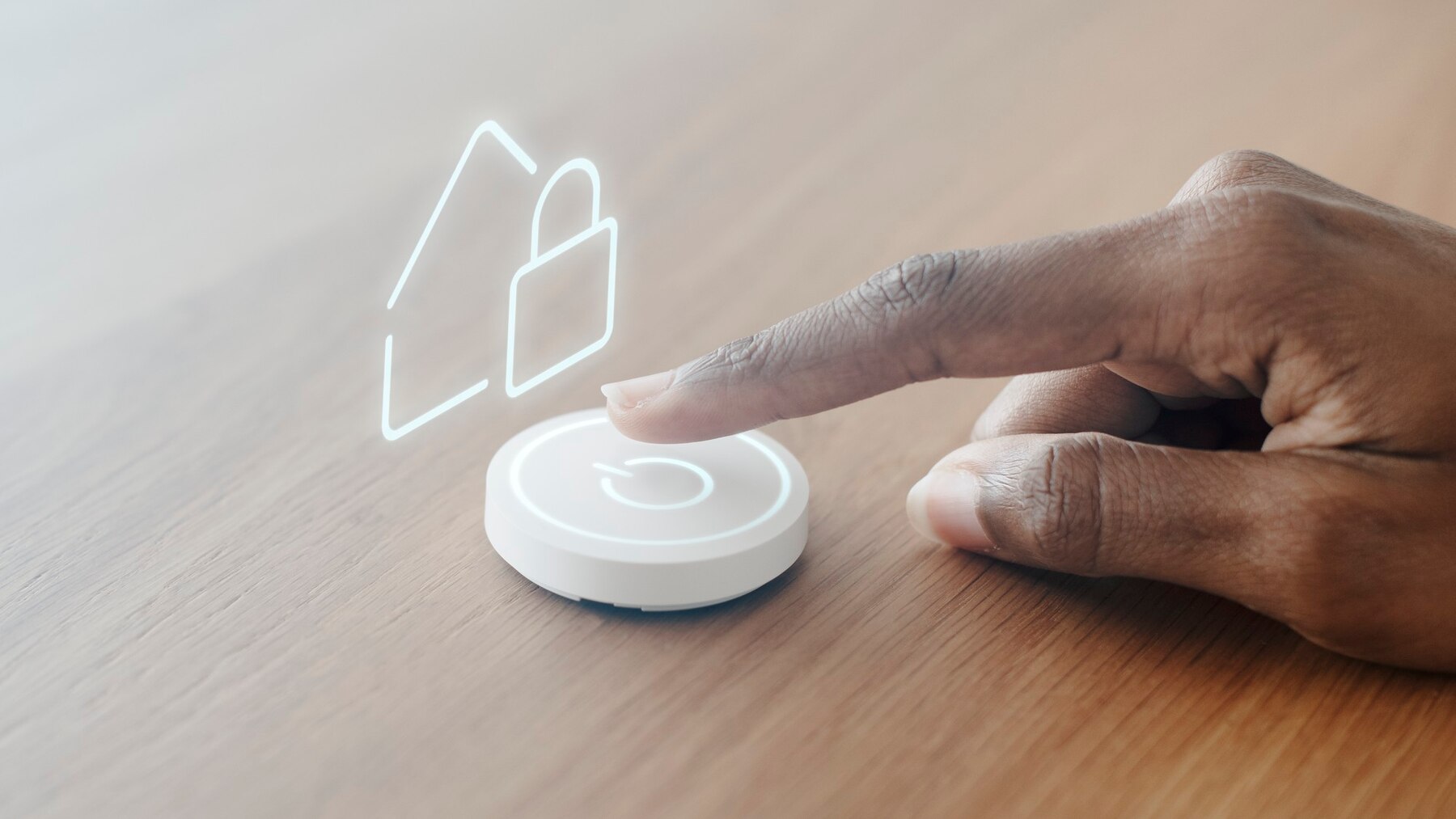
The Future of AI-Driven Home Security
AI home security systems are designed to provide an unparalleled level of protection. These systems use machine learning and data analysis to spot threats accurately. AI-driven security systems can monitor and react to suspicious activities on their own. This means faster response times and fewer false alarms compared to traditional systems that need human help.

Smart Surveillance
A major step forward in AI home security is the use of smart surveillance technology. AI-powered surveillance cameras can analyse video feeds in real-time. They spot unusual behaviour and alert homeowners or security staff. This proactive approach boosts security and gives useful insights into daily home activities.
Convenience and Accessibility
The integration of digital locks into AI home security systems offers unparalleled convenience and accessibility. Homeowners can use smartphone apps to control and monitor their security systems. They can lock or unlock doors, view live camera feeds, and get instant notifications. This level of control ensures that homeowners can stay connected to their security systems, no matter where they are.
Data-Driven Insights
AI home security systems can gather and analyse a lot of data. This helps homeowners understand their security needs better. These systems spot patterns and trends. They provide personalised recommendations to boost security. This way, homeowners stay one step ahead of possible threats.
Step-by-Step Guide / Actionable Insights
Step 1: Assess Your Security Needs
Before investing in an AI-driven home security system, it is essential to assess your specific security needs. Consider factors such as the size of your property, the level of security required, and your budget. This assessment will help you determine the most suitable AI home security solutions for your needs.
Step 1.1: Evaluate Vulnerable Areas
Identify vulnerable areas around your home, such as entry points, windows, and outdoor spaces. This evaluation will help you prioritise the installation of security devices, such as cameras and sensors, in high-risk areas.
Step 1.2: Determine Desired Features
Consider the features you desire in an AI home security system, such as smart surveillance, digital locks, and remote access. Knowing your preferences will help you choose a system that fits your lifestyle and security needs.
Step 2: Choose the Right AI Home Security System
Once you have assessed your security needs, it’s time to choose the right AI home security system. Research various options available on the market, comparing features, pricing, and customer reviews.
Step 2.1: Research Reputable Brands
Look for reputable brands that specialise in AI home security solutions. Consider factors such as their track record, customer support, and warranty policies. Opting for a trusted brand ensures reliability and peace of mind.
Step 2.2: Compare Features and Pricing
Compare the features and pricing of different AI home security systems. Seek systems that provide a full set of features. This includes smart surveillance, digital locks, and connections with other smart home devices. Consider your budget and choose a system that offers the best value for money.
Step 3: Install and Configure Your System
Once you have selected an AI home security system, it’s time to install and configure it. Follow the manufacturer’s instructions for installation. If needed, hire a professional for a smooth setup.
Step 3.1: Position Cameras Strategically
Position surveillance cameras strategically to cover vulnerable areas and maximise coverage. Ensure that cameras are placed at optimal angles to capture clear footage and minimise blind spots.
Step 3.2: Configure Alerts and Notifications
Configure alerts and notifications according to your preferences. Get instant alerts for certain events, like motion detection or door access. This keeps you updated on what’s happening around your home.
Step 4: Regularly Monitor and Maintain Your System
To ensure optimal performance, regularly monitor and maintain your AI home security system. Check for software updates, test devices, and review security footage to identify any potential issues.
Step 4.1: Perform Routine Checks
Perform routine checks on your security system to ensure all devices are functioning correctly. Test alarms, sensors, and cameras to verify their effectiveness.
Step 4.2: Review Security Footage
Regularly review security footage to identify any unusual activities or potential threats. This proactive approach allows you to take timely action and prevent security breaches.

Additional Expert Tips & Common Mistakes to Avoid
Expert Tips
- Integrate with Smart Home Devices: Think about connecting your AI home security system to smart home devices. This includes smart lighting and thermostats. This integration enhances convenience and allows for seamless automation.
- Enable Two-Factor Authentication: To boost security, turn on two-factor authentication for your security system. This extra layer of protection ensures that only authorised individuals can control your system.
Common Mistakes to Avoid
- Neglecting Software Updates: Not updating your security system’s software can make it open to cyber threats. Regularly check for updates and apply them promptly to ensure optimal security.
- Neglecting Physical Security Measures: AI systems provide great security, but traditional measures still matter. Strong locks and reinforced doors are key.
Advanced Insights / Expert Recommendations
Embracing AI-Powered Analytics
AI technology is evolving. This will change the future of home security with AI-powered analytics. These advanced analytics help security systems predict threats and offer proactive solutions. AI systems can analyse data from different sources. They identify patterns and trends that show security risks. This helps homeowners take preventive measures.
The Role of AI in Cybersecurity
Along with physical security, AI will be key in improving cybersecurity for home security systems. As more devices become interconnected, the risk of cyberattacks increases. AI-powered cybersecurity tools can spot and reduce threats. This keeps home security systems safe from digital attacks.

Smarter, Safer, and More Reliable
AI-driven home security has a bright future. It gives homeowners unmatched protection, convenience, and peace of mind. Homeowners can build strong security systems using AI, smart surveillance, and digital locks. This setup adapts to their needs. As technology advances, AI-driven home security offers endless possibilities. This promises a safer and more secure future for everyone.
In conclusion, using AI for home security isn’t just trendy; it’s essential for today’s homeowners. Stay informed and embrace new advancements. This way, your home can stay a safe haven for you and your loved ones. As you start this journey, think about your security needs. Pick the right system and stay active in keeping your security measures up to date. AI-driven home security can give you peace of mind. With the right approach, you can relax and enjoy your home without worry.

